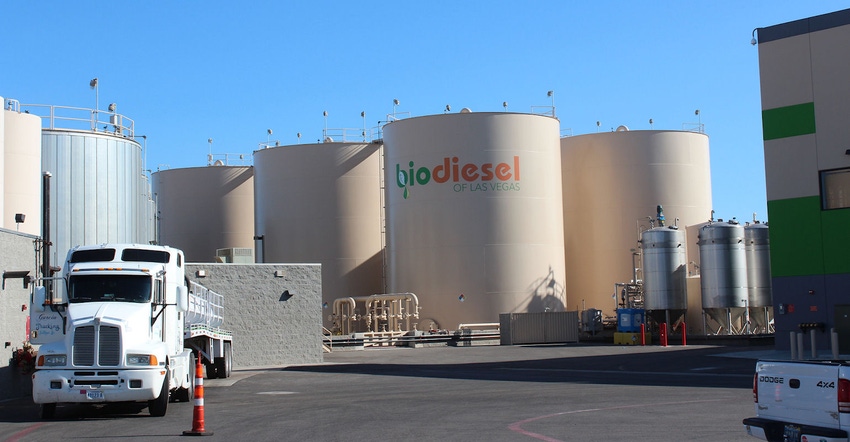
By Colin Wilhelm, Laura Davison and Jennifer A. Dlouhy
Tax incentives for biodiesel, alcoholic beverages and short-line railroads would be retroactively extended under a compromise unveiled by congressional leaders early Tuesday.
Those measures were included in a broader tax package the leaders are seeking to attach to a government spending bill. To keep the government running, both the House and Senate must pass that legislation by Friday, when federal funding is set to lapse.
The bill would extend a $1-per-gallon biodiesel tax credit and break for short-line railroads through 2022. It would also renew more than two dozen incentives through 2020, including a credit for wind energy, a tax cut for beer producers, subsidies for motorsport racetracks, and a credit for investing in low-income communities.
The biodiesel tax credit renewal has been a top priority for Senator Chuck Grassley, the Iowa Republican who heads the Senate Finance Committee, and other lawmakers from the Midwest. For nearly two years, biodiesel has effectively sold at a discount on expectations that Congress would retroactively renew the credit. Biodiesel, which is typically made from soybean oil, recycled cooking oil and animal fats, is more expensive than its conventional counterpart, petroleum-based diesel.
The deal falls short of a more expansive tax compromise lawmakers had delivered to the White House before the final agreement was reached.
Democrats had pushed for extensions to the solar investment tax credit. In exchange, the White House had asked for large corrections to the 2017 tax law that would benefit restaurants and retailers. Those businesses have seen some of their tax benefits scaled back because of a drafting error in the legislation. Republicans also pushed for a longer renewal of the biodiesel breaks. Ultimately, the larger deal couldn’t be reached.
The legislation does fix two smaller errors in the tax overhaul that would benefit non-profit employee parking tax breaks and rural electric co-ops. The bill also includes tax relief for taxpayers affected by recent natural disasters.
Supporters of the biodiesel tax credit -- including producers of the alternative fuel as well as oil refiners required to use it -- have warned that without the incentive’s renewal more manufacturing plants could shut early next year, building on 10 closures already.
The effects could ripple throughout the rural economy and lead to layoffs near biodiesel plants, the American Farm Bureau Federation, American Soybean Association and other groups told lawmakers.
--With assistance from Mario Parker, Kaustuv Basu and Ari Natter.
To contact the reporters on this story:
Colin Wilhelm in Arlington at [email protected];
Laura Davison in Washington at [email protected];
Jennifer A. Dlouhy in Washington at [email protected]
To contact the editors responsible for this story:
Jon Morgan at [email protected]
Karen Leigh, Muneeza Naqvi
© 2019 Bloomberg L.P.
Read more about:
BiodieselAbout the Author(s)
You May Also Like




